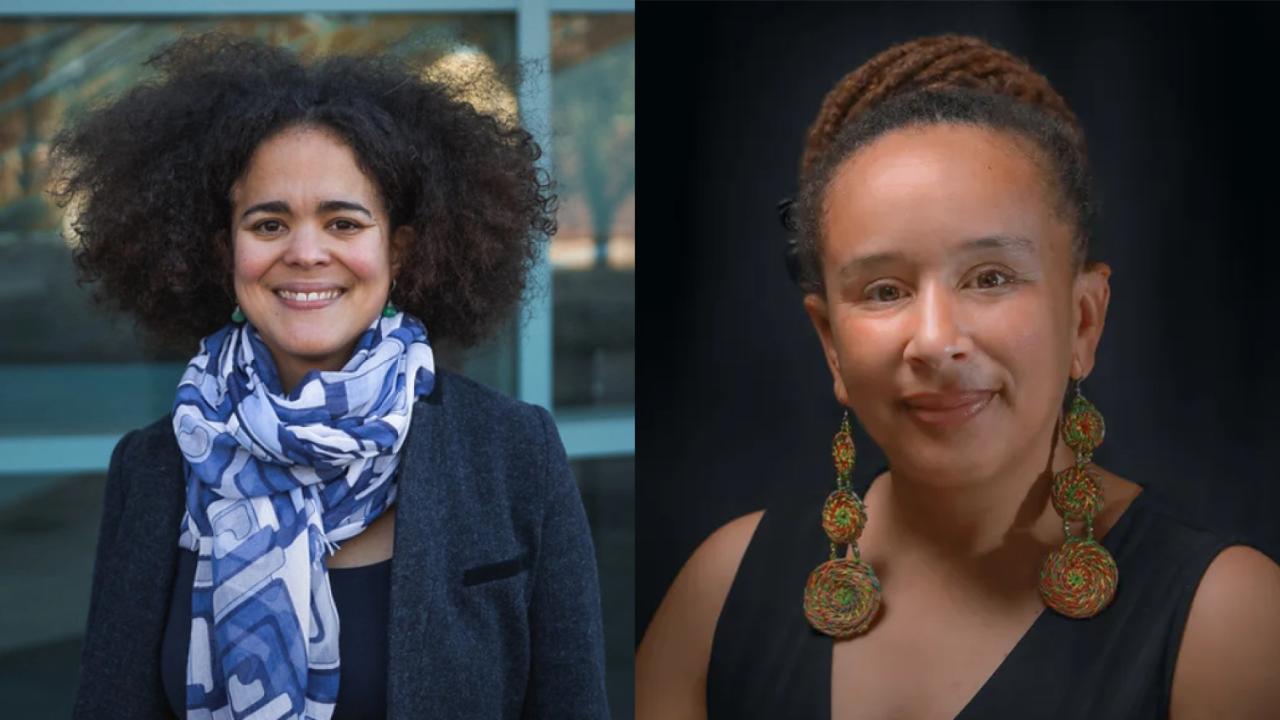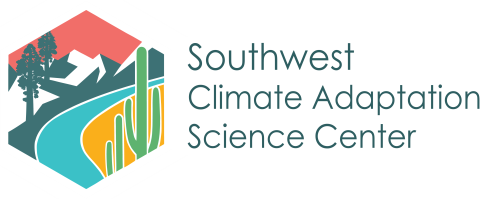
Beth Rose Middleton Manning to Lead UC Davis Partnership with the Southwest Climate Adaptation Science Center
Host center U of A awarded $7.4M for its work on climate adaptation solutions
UC Davis will partner for a second year with host institution, the University of Arizona, in continuing work on the Southwest Climate Adaptation Science Center. The center also received $7.4 million from the U.S. Geological Survey. The funding will go toward practical solutions to high-priority climate adaptation needs.
The Southwest Climate Adaptation Science Center is a collaborative partnership with the U.S. Geological Survey and seven academic institutions across the Southwest, including Northern Arizona University, Utah State University, the University of Nevada, Las Vegas, UCLA, University of California San Diego/Scripps Institution of Oceanography and the University of California, Davis.
Jia Hu, an associate professor in the School of Natural Resources and the Environment and assistant dean for graduate education in the College of Agriculture, Life and Environmental Sciences, is the lead PI of the project and outlined the center’s mission to conduct solution-oriented science.

Beth Rose Middleton Manning, a professor and designated emphasis chair graduate advisor in the University of California, Davis, Native American Studies department, and the director of the Institute of the Environment (IE) Environmental and Climate Justice Hub will serve as PI of the UC Davis site. Jasquelin Peña, an associate professor in the UC Davis Department of Civil and Environmental Engineering, a Faculty Scientist at Lawrence Berkeley National Lab, and an Institute of the Environment Environmental Faculty Fellow, will serve as co-PI.
UC Davis proposes an active program of developing actionable science through co-learning with tribal and community-based partners. They will focus on identifying and monitoring climate impacts, implementing and monitoring culturally appropriate climate adaptation strategies, and sharing lessons to impact environmental and climate policy.
Middleton and her team of postdocs and graduate students in Native American Studies and Ecology, Peña and her graduate students in Environmental Engineering, and Schwartz and his graduate students in Ecology each work at regional, state, tribal, and federal levels to advance climate adaptation that foregrounds community needs, knowledge, and skills. Middleton will continue to strengthen and expand collaborative projects with primarily northern California tribal land managers to implement culturally congruent climate adaptation strategies, particularly cultural fire. Middleton and graduate student researchers will coordinate and co-host cultural fire workshops with cultural fire practitioners. These co-sponsored cultural fire workshops led by cultural fire practitioners have helped to educate state and federal agencies, private landowners, and climate and fire scholars about cultural fire as a viable climate adaptation approach with multiple co-benefits for communities.

Peña and collaborators from the Lawrence Berkeley National Laboratory, American River Conservancy, and the Rancho Murieta Community Services District will continue working to understand the impacts of catastrophic fire in regional watersheds via a robust, citizen-science enabled water quality monitoring program. Partners will meet to discuss observations and management decisions (e.g., land conservation, water use and water treatment). Peña will continue to engage with the American River Conservancy, Rancho Murieta Community Services District, and the Cosumnes Coalition to build a data visualization portal. She will expand her existing citizen-science enabled water quality monitoring program to pair observations with historical data obtained from the USGS and hydrologic modeling to assess water quality resilience to fire. This project will also examine the interaction of post-fire impacts and weather extremes (e.g. atmospheric rivers). Peña and her research team hope to translate the findings from the Cosumnes Watershed to other mid-Sierra watersheds.
***
Since the year 2000, the U.S. Southwest has been entrenched in one of the worst prolonged droughts in over 1200 years, with climate change limiting our ability to manage freshwater, wildlife, coastal erosion, wildfires, forage and native plant species, and cultural resources. To prepare our region for a highly uncertain climate future, we need strong collaborations between research institutions, government agencies, Tribes, and community partners.
Since 2011, the Southwest Climate Adaptation Science Center (SW CASC) has been leading climate adaptation through community and Tribal engagement, capacity building, co-production of science, bi-directional learning, and communication of science to a range of audiences. We have spearheaded a new framework of climate science evaluation that identifies the societal impacts of our activities. Building on this strong foundation, in Phase III we will continue to co-produce science with existing and new partners, coupling Western science and Indigenous Knowledges to address diverse and pressing climate-driven issues facing the Southwest: wildfire, managing freshwater, managing for aridification, extreme weather and climate, wildlife, and climate and environmental justice.
We aim to address the direct and compounding effects of these challenges that impact human communities, wildlife, vegetation, soils, coastlines, and Indigenous food sovereignty. Through our activities, the SW CASC will generate new data collections, develop new ecosystem-climate-fire models, develop sub-seasonal weather-forecast models, develop wildlife management plans, identify new ways to augment Indigenous agricultural and cultural burning practices, build infrastructure for responding to climate impacts on mountain systems, strengthen relationships between scientists and practitioners, educate a new generation of graduate and undergraduate students on interdisciplinary climate science, and evaluate our impact on society using our innovative framework.

Media Resources
https://news.arizona.edu/news/u-center-awarded-74m-its-work-climate-adaptation-solutions